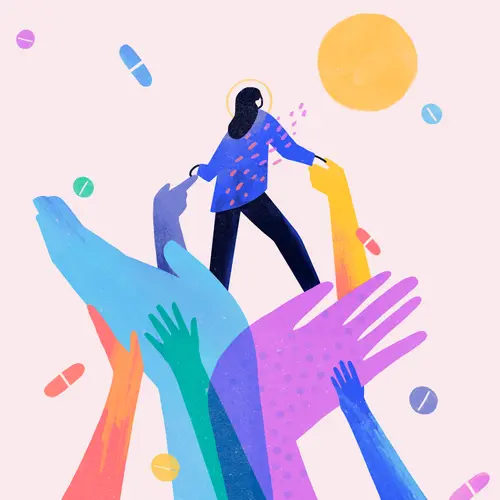Menopause is the end of a woman's menstrual cycle and fertility. It happens when:
- Your ovaries no longer make estrogen and progesterone, two hormones needed for fertility.
- Your periods have stopped for 1 year.
Menopause happens naturally with age. But it can also stem from surgery, treatment of a disease, or an illness. In these cases it can be called induced menopause, surgical menopause, or primary ovarian insufficiency, depending on the cause.
When Does It Start?
Menopause starts on average around age 51 when it happens naturally. But it can happen before you turn 40. This is called premature menopause. The age at which yours will start is mostly determined by your genes.
What Are the Symptoms?
When it starts naturally, the first sign should be an irregular menstrual cycle. Once it gets off-schedule, it should stop completely within about 4 years. You might also notice these vasomotor symptoms (VMS) such as hot flashes and night sweats. Other common symtpoms that occur during menopause include:
- Mood swings
- Lower sex drive
- Sweating
- Racing heart
- Headaches
- Vaginal dryness and soreness
- Painful sex
- Trouble sleeping
Some symptoms can last for years and affect your quality of life.
What Are the Stages?
The process happens slowly over three stages:
Perimenopause. Your cycles will become irregular, but they haven’t stopped. Most women hit this stage around age 47. Even though you might notice symptoms like hot flashes, you can still get pregnant.
Menopause. This is when you’ll have your final menstrual period. You won’t know for sure it’s happened until you’ve gone a year without one. Hot flashes, vaginal dryness, sleep problems, and other symptoms are common in this stage.
Postmenopause. This begins when you hit the year mark from your final period. Once that happens, you’ll be referred to as postmenopausal for the rest of your life. Keep in mind that after more than 1 year of no menstrual periods due to menopause, vaginal bleeding isn't normal, so tell your doctor if you have any ASAP.
Are There Any Tests for Menopause?
The most accurate way to tell if it's happening to you is to watch your menstrual cycles for 12 months in a row. It helps to keep track of your periods and chart them as they become irregular. Menopause has happened when you have not had any period for an entire 12 months.
Your doctor can check your blood for follicle stimulating hormone (FSH). The levels will jump as your ovaries begin to shut down. As your estrogen levels fall, you’ll notice hot flashes, vaginal dryness, and less lubrication during sex.
The tissue in and around your vagina will thin as estrogen drops, too. The only way to check for this is through a Pap-like smear, but it’s rarely done. As this happens, you might have urinary incontinence, painful sex, a low sex drive, and vaginal itching.
How Can I Treat the Symptoms?
There are a bunch of ways.
Lifestyle changes. A healthy diet and regular exercise program will help manage your symptoms and boost your health. This is a great time to finally kick any old, unhealthy habits like smoking or drinking too much alcohol. To help with hot flashes or night sweats [VMS], dress lightly and in layers. Avoid triggers like caffeine and spicy foods. And if you stay sexually active, that may help preserve your vaginal lining.
Prescription medication for vasomotor symptoms. If you still have your uterus, your doctor might prescribe treatment with estrogen and progesterone. This is called combination hormone therapy (HT) or hormone replacement therapy (HRT). It helps with hot flashes and night sweats, as well as help prevent osteoporosis. If you don’t have a uterus, you might get estrogen alone.
Hormone therapy isn’t for everyone. Don’t take it if you've ever had breast cancer, uterine or "endometrial" cancer, blood clots, liver disease, or a stroke. Also don't take it if you might be pregnant or you have undiagnosed vaginal bleeding.
If you can't or don't want to take hormones, other medications can ease symptoms. They include antidepressants, antiseizure drugs, or blood pressure medications to help with hot flashes and mood swings.
Prescription and OTC medication for vaginal dryness and sleep problems. You can try topical estrogen, lubricants, and non-estrogen prescriptions for dryness and painful sex. OTC or prescription sleep aids can help if you have trouble falling asleep.
Nontraditional options. There are many unproven methods for treating menopause symptoms. Some work better than others. Acupuncture, meditation, and relaxation techniques are harmless ways to ease the stress of menopause, and some people believe they help. Many women also try herbal or natural remedies. Talk to a doctor before trying any of these.

